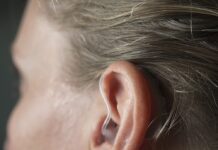
by Chris Shea
The Pregnant Workers Fairness Act (PWFA) amended the New Jersey Law Against Discrimination (NJLAD) to include pregnancy, including medical conditions related to pregnancy, childbirth, and recovery, as well as breastfeeding, as protected classifications under the law. The PWFA:
- prohibits employers from treating pregnant or breastfeeding employees less favorably than other employees;
- requires employers to provide reasonable accommodation upon the request of employees and based on the advice of a doctor, unless the accommodation poses an undue hardship; and
- Examples of pregnancy-related accommodations may include permitting increased breaks for increased water intake, bathroom use, or rest; providing assistance with manual labor; restructuring jobs; modifying work schedules; and temporarily transferring employees to less strenuous work.
- prohibits employers from penalizing employees who request such an accommodation.
Unlike other NJLAD accommodation claims, the PWFA contains its own “analytic structure” to determine a claim for failure to accommodate. Under the PWFA, an employee must show (1) that she was pregnant or breastfeeding; (2) that she made a request for a reasonable accommodation; and (3) that the employer failed to provide a reasonable accommodation.
Critically, employers are required to make such accommodations when an employee requests them, however, once the request is made based on the advice of a physician, the employer in most cases must provide the requested accommodations. With a physician’s note, the only way an employer can avoid having to provide the accommodations is if the employer can show that the accommodations would impose an “undue hardship” on its business operations. This is typically a very high burden under the law, and is not easy for employers to meet. Some of the factors in this “undue burden” analysis are the overall size of the business; the size of the budget; the nature and costs of the accommodation; and whether the employee can still perform the essential functions of her job.
Notably however the Supreme Court recently stated that unlike the undue hardship defense in other NJLAD accommodation actions; an employee’s inability to perform an essential function of her job is merely a factor to be considered when assessing undue hardship in PWFA cases. As such, the Supreme Court has determined that PWFA cases are the only category of cases where a jury should determine the question of undue hardship.
In summary the PWFA law goes beyond the normal protections extended to disabled employees. In the context of disability laws, such as the NJLAD and the federal Americans with Disabilities Act, employers should be cautious in their treatment of pregnant or breastfeeding employees’ special needs and should consider broad any and all forms of accommodations presented. This is particularly true, in the post, covid era where telework has been recognized as a reasonable accommodation by the judicial system and the equal opportunity employment commission.
If you believe you are a victim of employment discrimination based on pregnancy or breastfeeding, contact the Employment Lawyers at R.C. Shea & Associates at 732-505-1212, or contact us online to schedule a consultation today.






